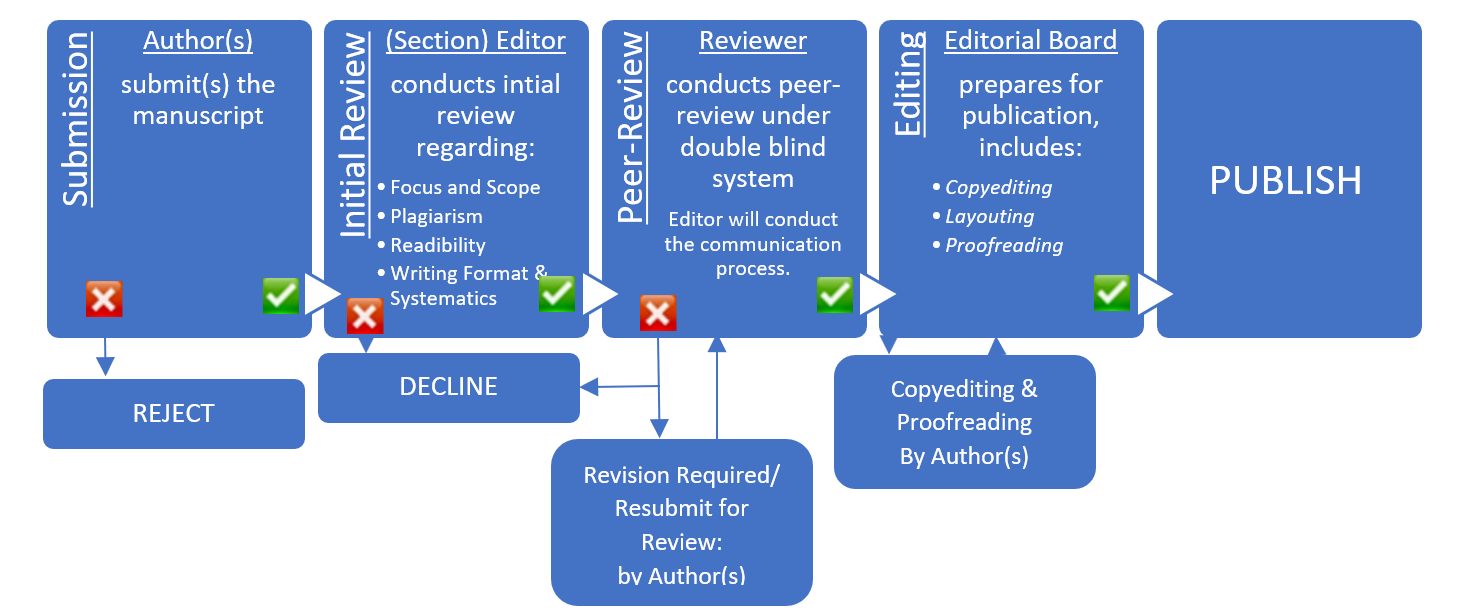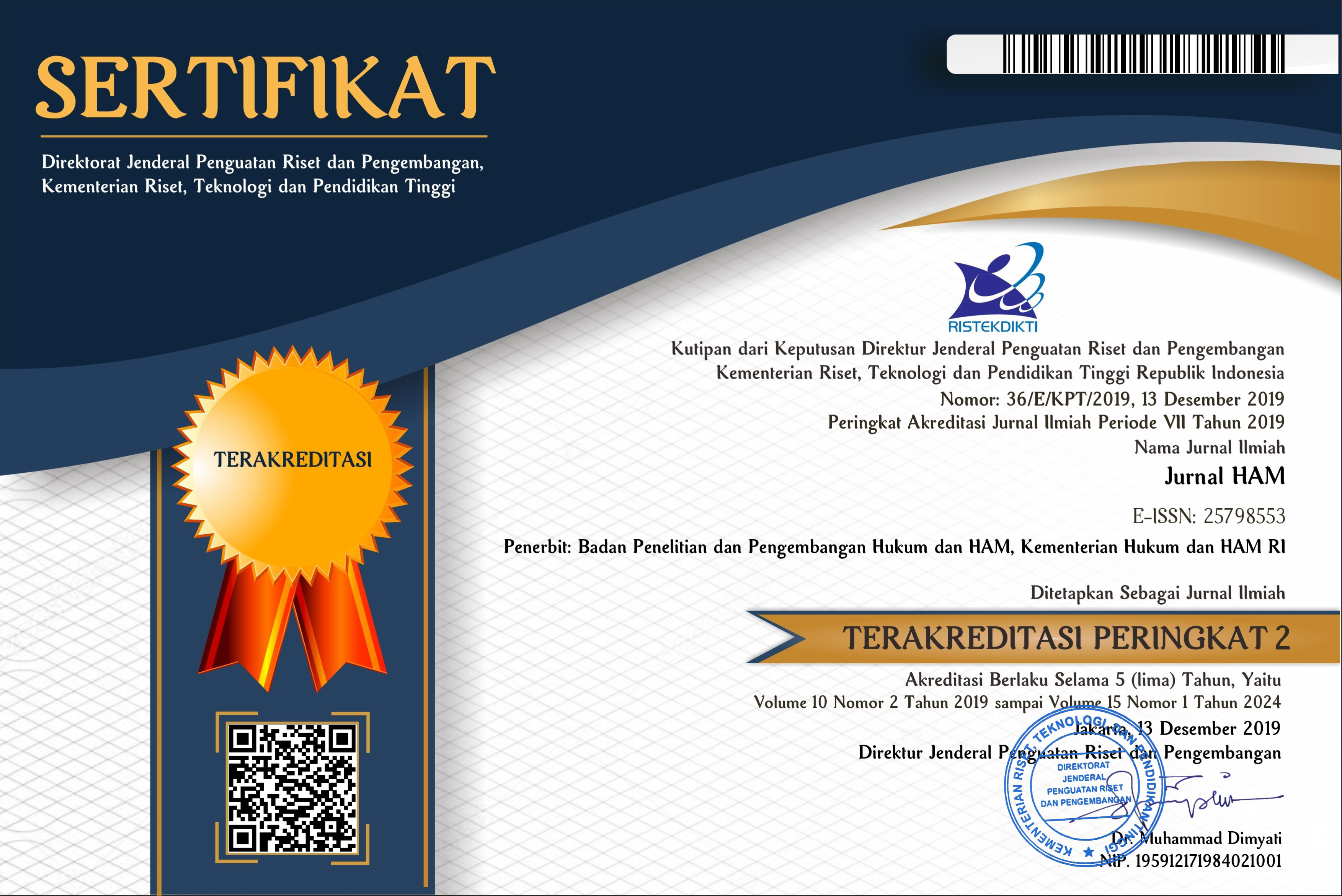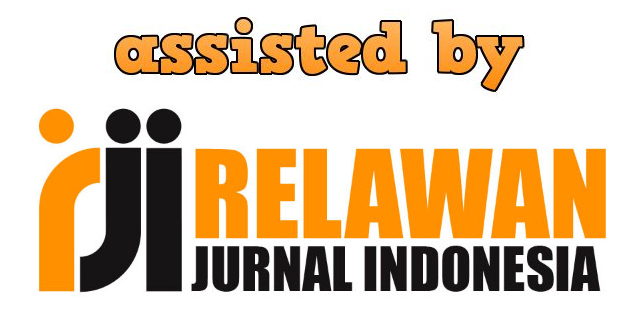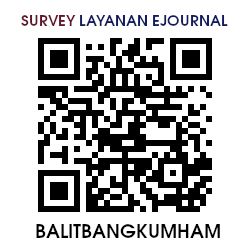- Focus and Scope
- Section Policies
- Peer Review Process
- Publication Frequency
- Open Access Policy
- Plagiarism Policy
- Article Processing Charges
- Subscription (Hard Copy)
- Authorship
- Erratum, Corrigendum, and Retraction
- Prior Publication Policy
- Index and Abstracting Services
Focus and Scope
Given that the study of human rights involves many scientific elements that are interdisciplinary in nature, Jurnal HAM accepts submissions of scientific articles discussing human rights in Indonesia and beyond from the lens of, but not limited to, legal studies, social sciences, politics, languages, international relations to communication.
The scope of human rights writing covers two aspects, namely Civil and Political Rights and Economic, Social and Cultural Rights, with the scope of study areas such as:
- Case studies on human rights issues;
- Regulation and protection of human rights;
- Economic, social and cultural rights;
- Civil and political rights;
- National and international human rights policies;
- Human rights in law enforcement;
- Business and human rights;
- Institutions and institutionalization of human rights.
The study areas mentioned above are not an exhaustive list of studies on human rights. For this reason, the Jurnal HAM remains open for manuscripts with objects to be analyzed related to human rights.
Section Policies
Articles
Editors- Fitriyani Fitriyani
Reviews
Editors- Fitriyani Fitriyani
Peer Review Process
The review process is carried out in two stages. The first is by the editor, and the second is by Peer Reviewer. The review process in the Journal is initiated by the editor to see the suitability of the manuscript with the journal template, readability, plagiarism, and conformity with focus and scope. If a manuscript is declared to have passed the first stage of the review, it will be continued to the second stage of the review. Peer-Reviews are carried out by at least two reviewers using a Double Blind Peer-Review system, meaning that Peer Reviewer and the Author do not know each other's names and identities. The review process takes approximately one month, while the total estimated duration from the submission to publication is 65 working days. The following is a chart of the review process in the Journal.

Briefly, the steps include:
Submission of manuscripts by the author;
Initial review by the editor which is carried out within 5-10 working days after the manuscript is received through OJS. At this stage the editor checks the level of plagiarism, the suitability of the manuscript with focus and scope, template, and readability. The editor has the right to accept, reject, or review the submitted manuscript. The manuscripts that have been rejected by the Editor in the initial review stage can be resubmitted after revision is made immediately within 3 months after the last submission;
The review process which is carried out by Peer Reviewer after the editor declares the manuscript is feasible to be forwarded to Peer Reviewer. At this stage, each manuscript will be reviewed using a double blind peer-review system by two Peer Reviewers. This manuscript review process takes approximately one month.
- The editor's decision on the manuscript that has been reviewed by Peer Reviewer. There are four options in editor's decision, which are:
- Accepted, for manuscripts that will be processed further.
- Revision Required, for manuscripts that will be further processed after the revision is reviewed by the editor;
- Resubmit for Review, for manuscripts that will be further processed after the revision results are reviewed by Peer Reviewer;
- Decline, for manuscripts that are declared unpublished or rejected;
- Manuscript revision under revision required and resubmit for review is carried out by the author. The period of time for revisions to authors is determined by the editor based on the nature of the revisions required (major or minor), a maximum of 15 working days, for one revision process. Revisions requested by the editor to the author can be made more than once. Accepted decision will be made by the editor after reviewing the revised results from the author. A Letter of Acceptance will be issued once the accepted decision is made. If the manuscript is declared accepted, then the editing process will be carried out;
- The editing process, which includes Copyediting, Lay-outing, and Proofreading, that requires a maximum of 20 working days;
- Online publication on the ejournal.balitbangham.go.id page
Publication Frequency
Published three times a year, in April, August and December.
Open Access Policy
This journal provides immediate open access to its content on the principle that making research freely available to the public supports a greater global exchange of knowledge.

This work is licensed under a Creative Commons Attribution-NonCommercial 4.0 International License.
Plagiarism Policy
The Journal does not tolerate plagiarism or self-plagiarism, for that:
Authors are required to ensure that the manuscript submitted is the original work of the author;
Use of other people's ideas/thoughts can be done by citing in accordance with applicable regulations;
Authors are not allowed to submit the same manuscript or have similar ideas to other journals;
Authors are required to do a plagiarism check independently and upload the results in the supplementary files section in the fourth step of the submission process.
Plagiarism checks are carried out in two ways, which are:
By manually searching for titles and keywords in the manuscript and checking the citing procedures;
By using Crossref Similarity Check (powered by iThenticate) to find the level of similarity of the manuscript with other posts.
The Journal only accepts articles with a similarity level of less than or equal to 15%. The similarity check is carried out on all manuscripts, except direct quotations and bibliography. The Editorial Board will reject articles that are indicated as plagiarism or have a similarity rate of more than 15%.
Since September 2022, the Journal has taken firm action against plagiarism and redundancy by following the COPE policy standards, which are:
- If plagiarism is found in the submission process (before the article is published), the Journal will take action by referring to https://publicationethics.org/files/plagiarism-submitted-manuscript-cope-flowchart.pdf;
- If redundancy is found in the submission process (before the article is published), the Journal will take action by referring to https://publicationethics.org/files/duplicate-publication-submitted-manuscript-cope-flowchart.pdf;
- If post-publication redundancy is found, the Journal will take action by referring to https://publicationethics.org/files/plagiarism-published-article-cope-flowchart.pdf;
- If post-publication plagiarism is found, the journal will take action by referring to https://publicationethics.org/files/plagiarism-published-article-cope-flowchart.pdf.
Article Processing Charges
Every article published to this Jurnal will not have any 'Article Processing Charges' (USD 0/Rp0,-). This includes submission, peer-reviewing, editing, publishing, maintaining and archiving, and allows immediate access to the full text versions of the articles.
Subscription (Hard Copy)
Agencies wishing to subscribe to the print version can contact the editor free of charge (subject to availability).
Authorship
This journal recognizes authors as individuals who have made significant contributions both in the research and writing process. Author contributions in articles published by the Journal refer to the roles described in CRedit (Contributor Roles Taxonomy)
Erratum, Corrigendum, and Retraction
Post-publishing article changes as a form of correction of significant errors are possible in the form of:
- Erratum, which is correction of writing errors made by the publisher. Erratum is done under the permission of the author.
- Corrigendum, which is changes to articles submitted by the author. Corrigendum can be made under the approval and instructions from the editor.
- Retraction, which is the revocation of an article as a whole. Retraction can be done for several reasons, including the unreliability of an article, a violation of plagiarism, multiple publications, and other reasons in accordance with the provision of https://publicationethics.org/files/retraction-guidelines-cope.pdf.
Prior Publication Policy
Journals only publish manuscripts that have never been published before. Thus, writings that have been published, especially through publishers, in the form of books and journals, cannot be republished. Nevertheless, the Journal does not consider several forms of use of works as a form of publication, namely:
1. Publication in the form of Abstract;
2. Publication as Thesis/Thesis/Dissertation;
3. Publication as an electronic preprint.
Index and Abstracting Services
This journal is available in the following index:












